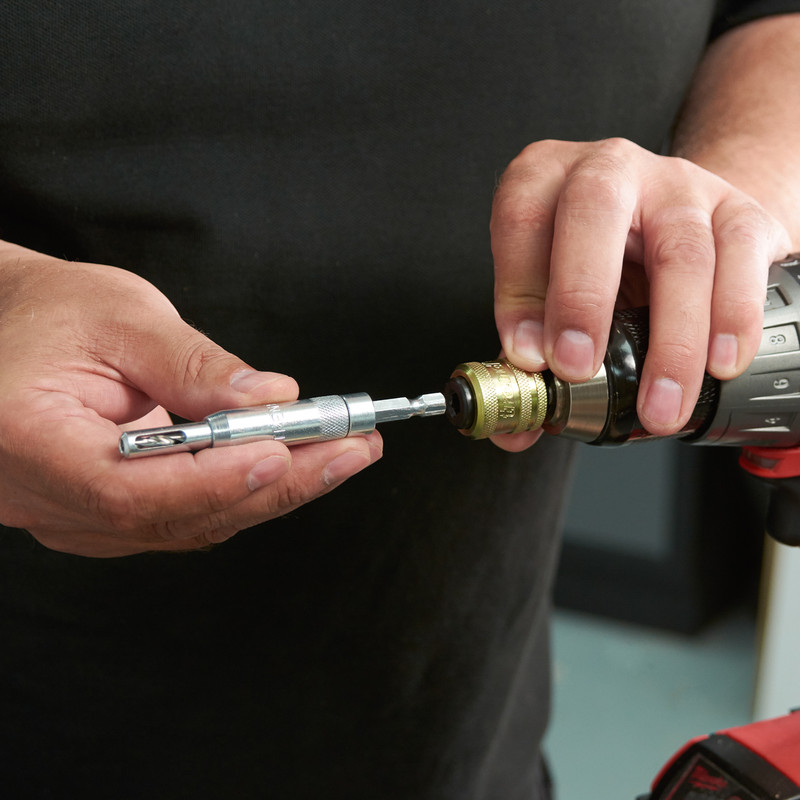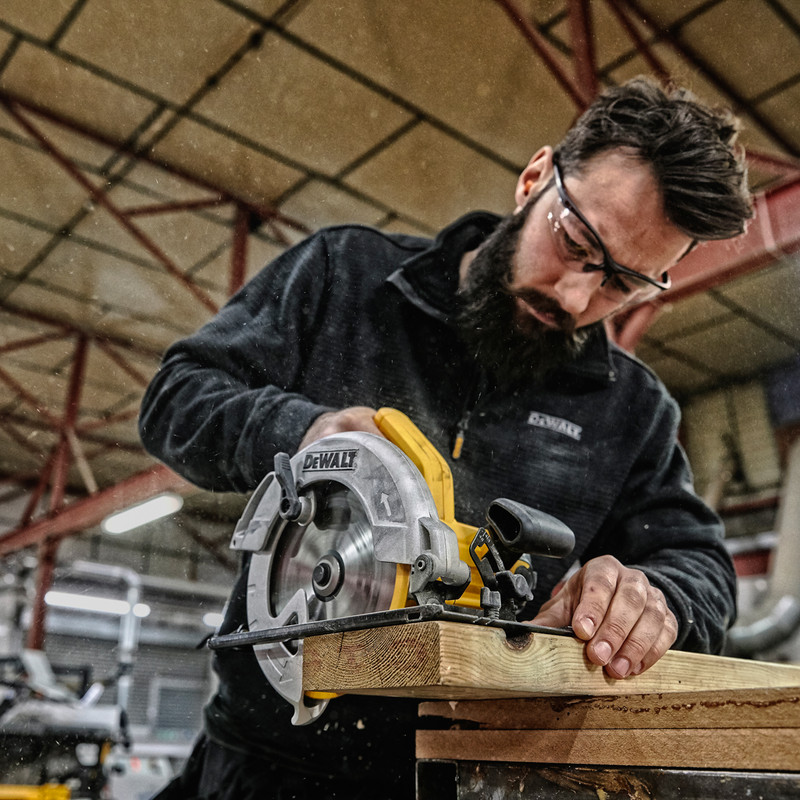Choosing between the different types of drill bits available can be overwhelming. From twist drill bits to auger bits, it can be hard to know where to start. Your choice will depend on a number of factors – primarily the material you’re drilling into.
The drill you’re using will also affect the right type of drill bit. For example, SDS drill bits should only be used in SDS drills because of the structure which allows the bit to move back and forth in the chuck. That’s not all – the drill bit shank (the part that is held by the drill) will influence the type of drill bit you should choose.
You’ll find drill bits in a range of materials and may have diamond or carbide tips for extra strength when drilling into tough surfaces. Getting your toolkit started? Many drill bits will come as part of a set, meaning you’ll have a range of size options available for any project.
Types of Drill Bits
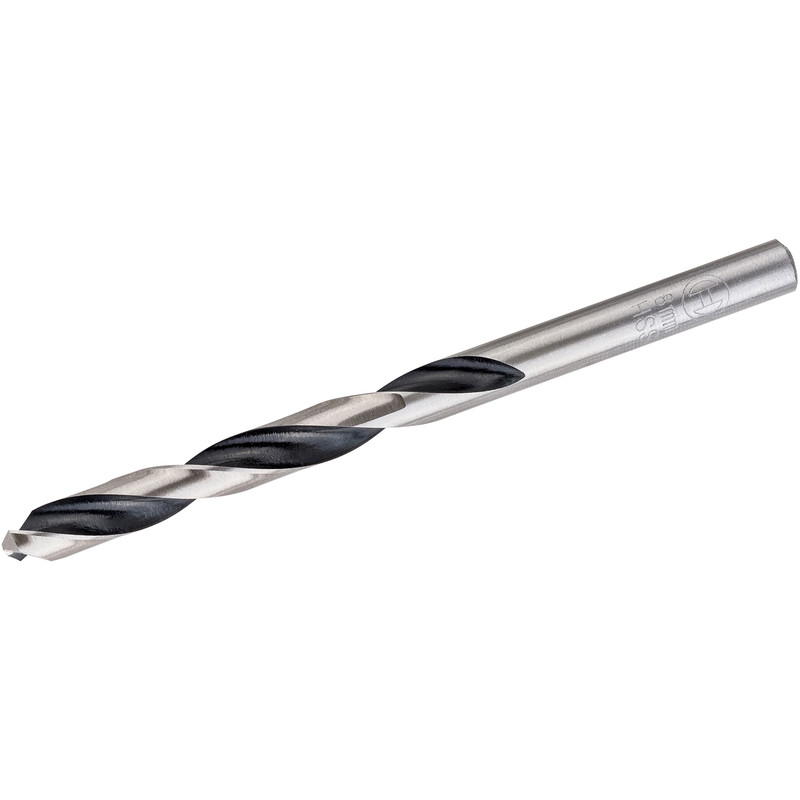
HSS Drill Bits
HSS drill bits, also known as high speed style or twist drill bits, are the standard type of drill bits you’d expect to come across. They have spiral grooves twisting down the length of the body which remove debris, while the front edges cut into the material. HSS drill bits are used for drilling into wood, plastic, and soft metals because they’re resistant to heat so they won’t damage the material.
Twist bits are hardwearing and can be sharpened if they become dull with a bench grinder or belt sander. They’re also more affordable than other types of drill bits. This, combined with their wide availability, versatility and variety of sizes makes them an ideal drill bit for DIYers and tradespeople alike.
You’ll find that HSS drill bits will need resharpening over time, and they’re often more fragile than many other drill bits. For this reason, they’re not suited for use on very hard materials, and may have a slower cutting speed than other drill bits. Twist bits may also drift along a surface if not used correctly, which could create uneven holes.
Advantages
-
Versatile, widely available and a range of sizes to choose from
-
Hardwearing and can be sharpened to prolong life
-
Cost effective
Things to Consider
-
Need to be resharpened over time
-
Fragile and slower cutting speed
-
May drift along a surface if not used correctly
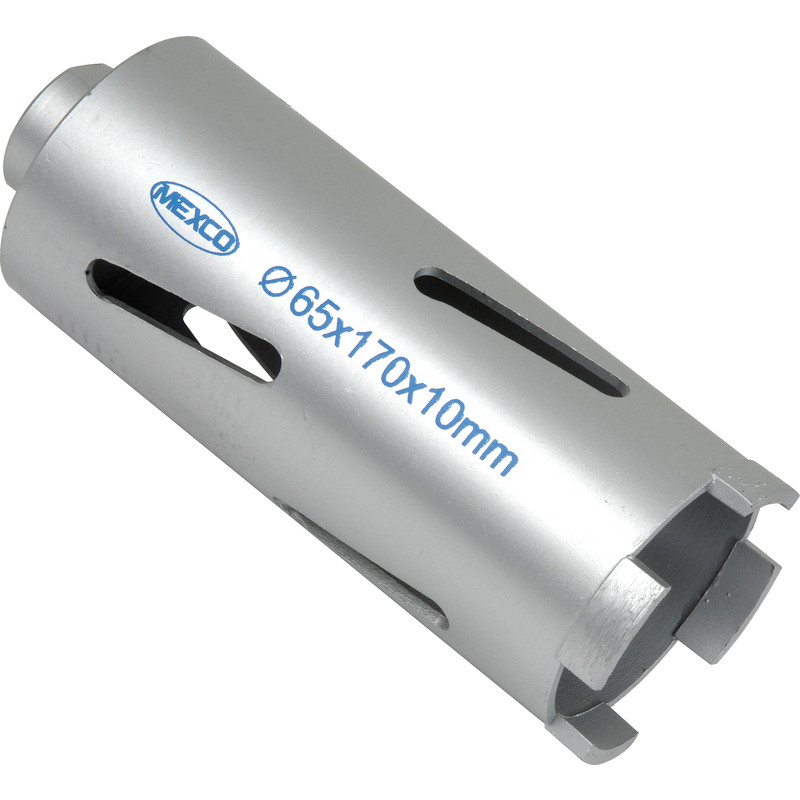
Core Drill Bits
Core drill bits have a hollow centre and diamond or carbide powder on the edge for extra cutting power. They’re used for cutting very precise holes of various sizes in materials including brick, stone and concrete. Core drill bits are most commonly used when holes are needed for large pipes or cables.
These drill bits are extremely strong and leave very clean holes in material. Core drill bits make relatively quick work of large-scale projects that would otherwise take a long time. Their long lifespan – as a result of the diamond or carbide tip – makes them cost effective.
Despite their cost effectiveness, core drill bits come at a higher upfront cost than other types – meaning they’re not suited to every budget. Core bits also require more skill to achieve clean, precise holes. You’ll also find core bits are bigger and bulkier than standard bits, so are less suited to tight spaces.
Advantages
-
Very precise, clean holes of various sizes
-
Make quick work of large projects
-
Long lifespan makes them cost-effective
Things to Consider
-
Higher upfront cost
-
More skill required to operate and get desired results
-
Less suited to tight spaces
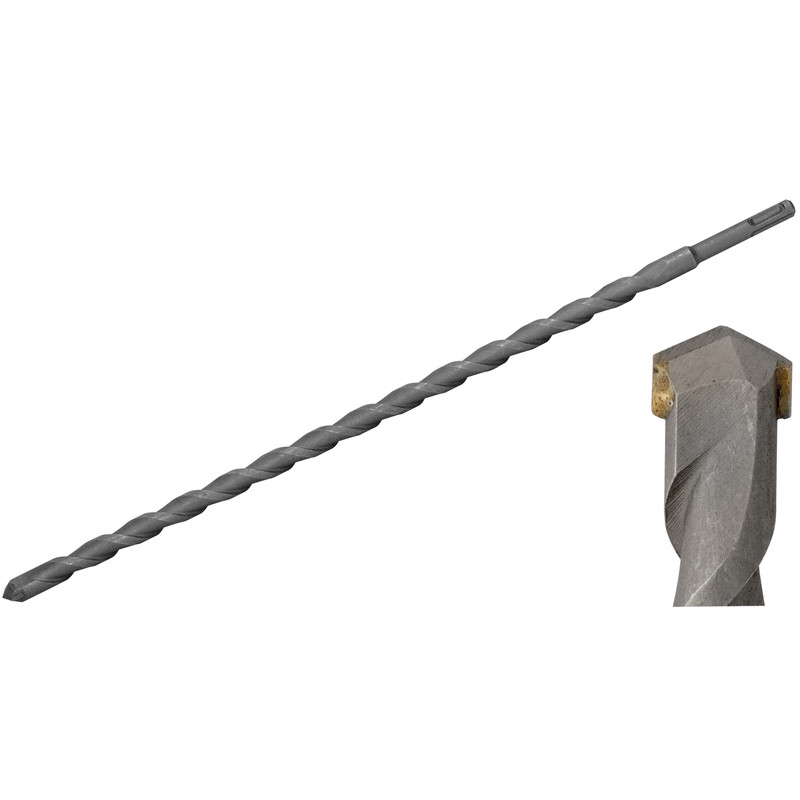
SDS Drill Bits
SDS drill bits have a slotted, cylindrical shank that fits into the chuck of an SDS drill and moves back and forth in a hammering motion when in use. They come in a variety of sizes and shapes, including fluted tips for hammer drilling and chisel attachments to remove material. SDS bits are made from durable materials such as carbide for added strength when drilling into masonry, concrete and other hard surfaces.
Due to the slotted design of SDS drill bits which holds them in place securely, they’re highly powerful – perfect for the most challenging of projects. They have a long life and are the only drill bits that can withstand the power of an SDS drill.
SDS drill bits are typically more expensive than other types, such as standard twist drill bits. They’re also only suitable for use in an SDS drill, so they have limited uses. Because of the application they’re used in – such as masonry – a lot of dust and debris is created when using SDS drill bits.
Advantages
-
Variety of shapes and sizes
-
Durable and long lasting
-
The only drill bits that can be used with SDS drills
Things to Consider
-
Typically come at a higher price than standard drill bits
-
Limited uses – only SDS drills
-
Lots of dust and debris created
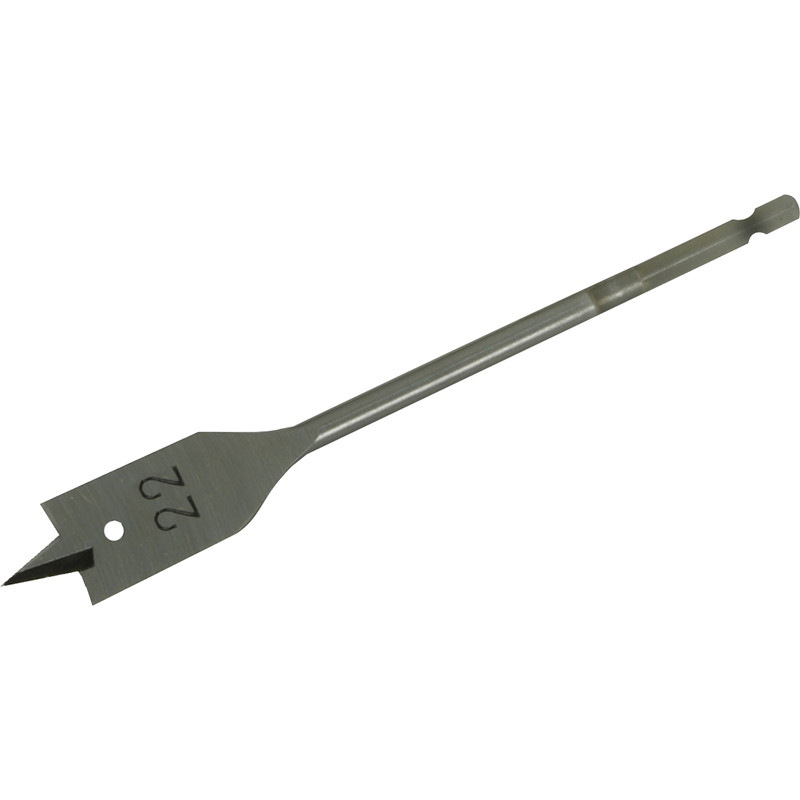
Spade Drill Bits
Wood drill bits, also known as spade drill bits, have flat, paddle-shaped cutting edges and a centre point that can be used as a guide when drilling. They make round holes in wood for installing cables, pipes and conduit. Wood drill bits are made with high-speed steel or carbon steel and have different shank sizes for different drill chucks.
Spade drill bits are often less expensive than other drill bits designed for wood, and can bore holes at rapid speeds. Their speed makes wood drill bits ideal for large-scale projects. They’re also able to drill flat-bottomed holes for certain hinge types as well as complete holes in wood, meaning spade bits have more applications than you’d expect.
Holes created by spade bits can be rougher than other types of drill bits designed for wood, and may cause some splintering – choose an auger bit if you’re after precise, clean holes. They’re also less versatile than typical drill bits, as they’re only suited for drilling into wood.
Advantages
-
Less expensive than other drill bits for wood
-
Quickly bore into wood, ideal for large scale projects
-
Flat-bottomed holes as well as complete holes
Things to Consider
-
Rougher holes than other types of wood bit
-
Less versatile – only suited for wood

Masonry Drill Bits
Masonry drill bits, as the name suggests, are used to drill into masonry such as brick, stone and concrete. They’re made of high quality hardened steel and often have a tungsten carbide tip to cut through hard surfaces. Masonry drill bits are available in a range of sizes and lengths to suit any project.
The main advantage of masonry drill bits is that they make light work of cutting into very hard, dense materials that standard drill bits would struggle with. The tips of masonry drill bits are often shaped like an ‘S’, which helps to remove debris from the hole better than standard drill bits.
Masonry drill bits are strong, just like SDS bits – but masonry bits have a straight shank so they are more likely to slip if they’re not secured properly. They’re best suited to powerful drills like percussion drills only, and won’t be much use in standard drill drivers.
Advantages
-
Hardened tip to cut through very hard surfaces
-
Structure can help to remove debris from the hole
Things to Consider
-
Best suited for very powerful drills
-
Straight flute could slip if not secured properly
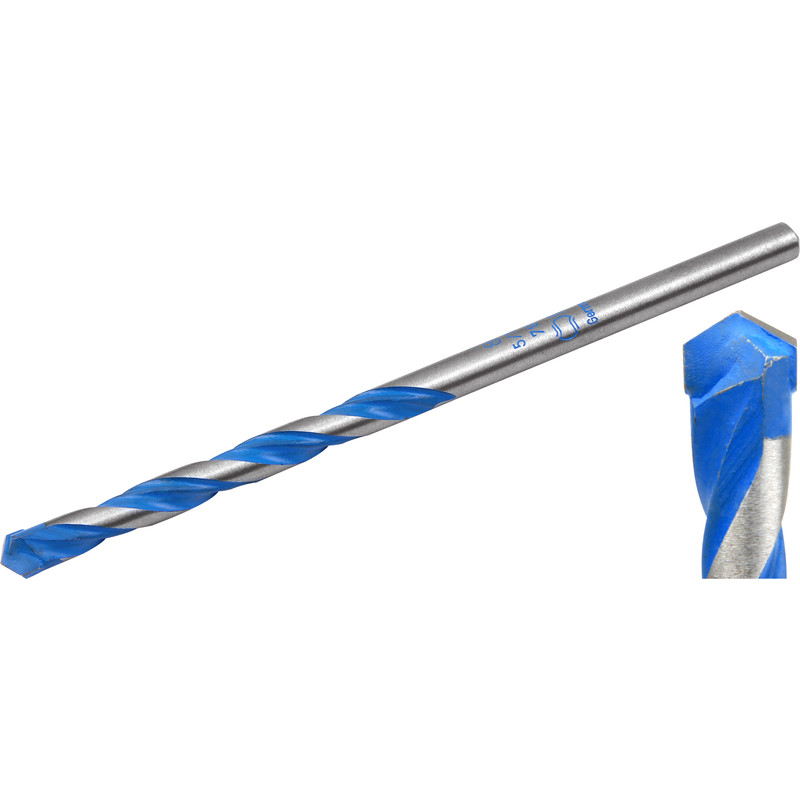
Multi-Purpose Drill Bits
Multi-purpose drill bits are used in a variety of applications, including drilling into wood, metal, masonry and plastic. They’re often made of durable high speed steel and have a standard twist bit structure, a spiral flute to help clear debris, and a sharp point to guide the bit into the material.
These drill bits allow DIYers and tradespeople alike to save time on large projects by not changing the drill bit between surfaces. Multi-purpose drill bits also allow you to save money and space by not having a wide range of drill bits filling up your toolkit.
Whilst multi-purpose drill bits are great for a range of uses, they won’t perform as well as specialised bits. For example, wood drill bits will be best suited for wood, and masonry drill bits will best suit masonry. Multi-purpose drill bits are also less durable and accurate, especially when used on harder materials such as stone or brick.
Advantages
-
Save time, space and money
-
Spiral flute helps to clear debris
-
Can be used in a variety of applications
Things to Consider
-
Unlikely to perform as well as specialised drill bits
-
Less durable than other types
-
Less accuracy, especially with harder surfaces
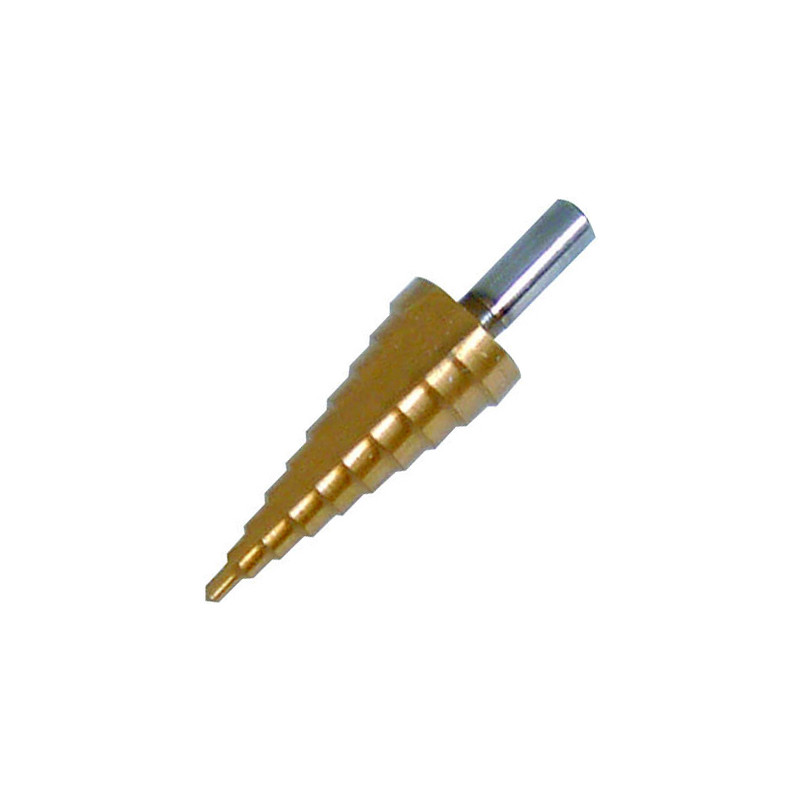
Step Drill Bits
Step drill bits, also known as unibits, are used for drilling progressively larger holes in sheet metal, plastic and other thin materials. They have a stepped design, with slightly larger diameters along the length of the bit which forms a cone shape. Step drill bits are commonly found in automotive or heating and venting applications.
Unibits can save time as you won’t need to change the drill bit when you need a slightly larger hole. They also create relatively clean holes in the material. Additionally, step drill bits are short, which can make it easy to move around at different angles.
These drill bits are not easy to resharpen because of their stepped structure, which could limit their lifespan. Step bits also have a higher price tag than multi-purpose drill bits or twist drill bits. They’ll also struggle to get through thick or hard materials.
Advantages
-
Save time not changing the drill bit for larger holes
-
Create clean holes
-
Short and easy to manoeuvre
Things to Consider
-
Not easy to resharpen
-
Higher price tag than standard drill bits
-
Not suited to thick or hard materials
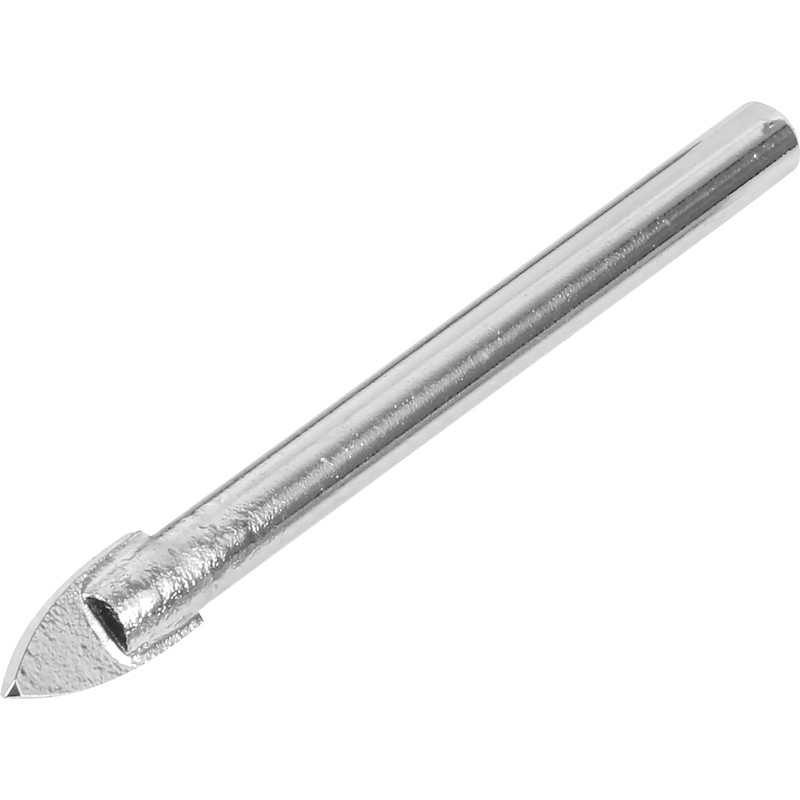
Glass Drill Bits
Glass drill bits have a sharp, fine carbide tip to prevent glass from chipping or cracking when drilled into. They’re often used in precise glass-cutting applications, such as jewellery making.
Drill bits made for glass are extremely precise and make clean holes. Tungsten carbide is stronger than steel, and the chemical makeup of the material makes glass drill bits extremely durable and long lasting. Glass drill bits are also sometimes suitable for drilling into tile, making them more versatile than you’d expect.
Glass drill bits are generally more expensive than standard drill bits – although for glass cutting, your options are limited as many other bits would crack the glass. They don’t have a wide range of uses, as they’re mainly used for glass and tile, meaning they’re not necessary for many DIYers.
Advantages
-
Prevent glass cracking due to tungsten-carbide bit
-
Precise, clean holes
-
Sometimes suitable for drilling into tile
Things to Consider
-
Generally more expensive than standard bits
-
Limited uses
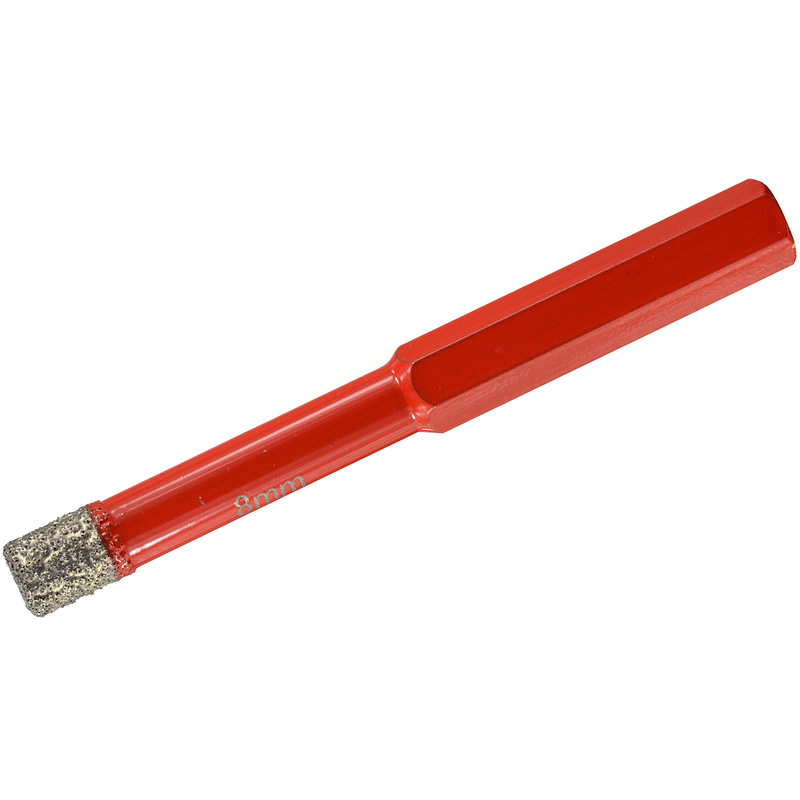
Tile Drill Bits
Tile drill bits have a very strong diamond or carbide tip which are ultra-strong and therefore prevent the tiles from cracking or chipping. Most tile drill bits have a flat tip but you’ll also find spear point tips. Flat, diamond-tipped drill bits are perfect for porcelain and glass mosaic tiles, while spear point carbide bits work well for ceramic tiles.
Tile drill bits can be used in wet conditions, which is ideal because lubrication – such as water – keeps the drill bit cool and are therefore more reliable when drilling. Tile bits make precise, clean holes due to the extra strong tip.
These drill bits can come at a higher price tag than standard drill bits, but if you want to drill into tile you won’t have any other options. If you’re looking to keep your toolkit small, tile drill bits have a limited use and may not be worth buying if you can avoid it.
Advantages
-
Drill into tiles without cracking or chipping them
-
Can be used in wet conditions
-
Precise, clean holes
Things to Consider
-
Higher price tag than standard drill bits
-
Limited uses
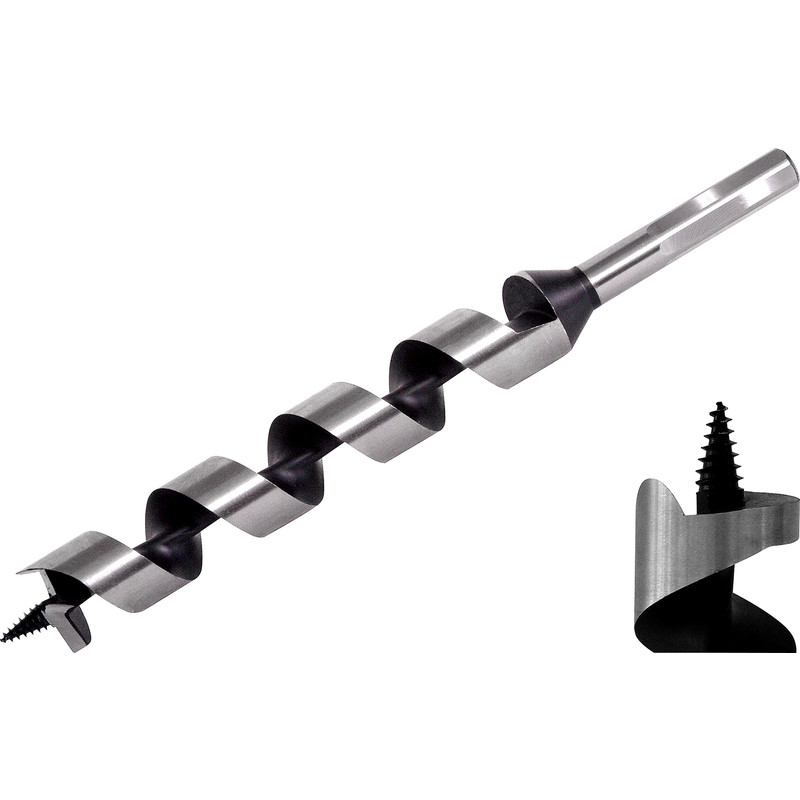
Auger Drill Bits
Auger drill bits have spiral grooves along the length of the body like a corkscrew to remove debris, and a screw-like tip. They’re made from high carbon steel and have a larger diameter than other types of drill bits for larger holes, but can come in a variety of sizes. Auger bits are used for making deep, clean holes in thick pieces of wood – for example, for dowels and hinges.
These drill bits can make quick work of large woodworking projects. The screw tip helps to keep the drill bit straight and prevent wandering in the material. The fluted edge removes material as it’s drilling in, which reduces the risk of burning or excessive friction – helping to create a cleaner hole.
Auger drill bits are specifically designed for use in wood, making their uses relatively limited. They also have a slower cutting speed than other types of drill bits designed for wood, because they remove material as the bit rotates. Auger bits are also less suited for soft wood which can become damaged by the screw tip.
Advantages
-
Deep, clean, quick holes in thick wood
-
Screw tip keeps bit straight
-
Fluted edge removes material while drilling
Advantages
-
Limited uses – wood only
-
Slower cutting speed to allow material to be removed
-
Less suited for soft wood
Key Drill Bit Considerations
Material
The right drill bit material for the job will depend primarily on the surface you’re drilling into. Many drill bits will be made from high speed steel or carbon steel, which are economical, hard-wearing and versatile. For harder materials such as masonry, and those that need more precision like glass, a durable tungsten carbide drill bit is perfect.
Some drill bits will have special tips, such as diamond or carbide. These tips can help drill into glass or tile without breaking the material. Core drill bits also have diamond edges to give them extra power for drilling large, clean holes.
Length
Generally, you should use the shortest drill bit you can for the job. Shorter drill bits are more accurate and give you greater control, especially when working at high speeds. They’re also more rigid, break less often, and are better suited to tight spaces such as inside cabinets or underneath shelves.
Longer drill bits are sometimes necessary, especially when it comes to large projects that involve drilling into masonry or thick pieces of wood. Drill bit lengths can range from a centimetre to a metre long, so you’ll always be able to find the right one for the job.
Diameter
The diameter of the drill bit, measured in millimetres, refers to how wide you need the hole. It’s best to start narrower, because you can always make the hole bigger, but you won’t be able to make it smaller. If you’re driving a screw into the hole, choose a drill bit narrower than the screw so the threads can get into the material.
The most common diameter of drill bits is between 1 mm and 10 mm for standard twist bits, and you’ll often find sets with a range of sizes. Core drill bits, which are designed to make much bigger holes for pipes or cables, will have diameters of up to a few centimetres wide.
Shank Type
The shank of a drill bit is the part that goes into the drill. The choice of shank type will depend on the type of chuck the drill has, as the chuck is what holds the bit. The standard chuck size is ¼ inch, and this would be the maximum shank size that will fit.
A straight shank is the most common, which is circular and the same size up and down. They’re held in a three-jaw chuck. A hex shank has six sides held and has high torque – they’re commonly used in electric screwdrivers. SDS shanks are designed for SDS hammer drills. They’re not held solidly and can move back and forth like a piston.

